The Stanley Cup Finals Are A Display Of Differing Front Office Philosophies
The Stanley Cup Finals Are A Display Of Differing Front Office Philosophies
Stanley Cup opponents Dallas and Tampa Bay got here via different paths. Here's how it happened.
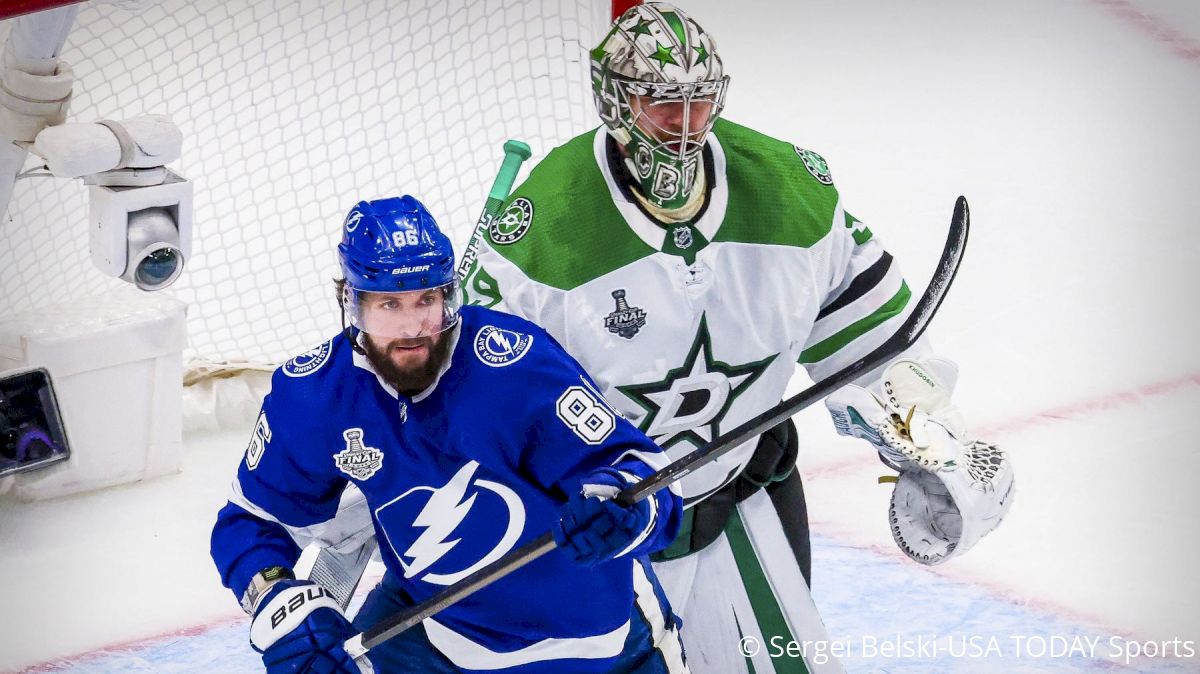
The 2020 Stanley Cup Final between the Tampa Bay Lightning and Dallas Stars is a clash of front office philosophy as the Lightning tied the series up 1-1 last night.
Both teams are cemented by top-tier goaltending, despite Stars’ No. 1 netminder Ben Bishop having played in just three postseason games. But 1B option, Anton Khudobin — who led all goaltenders in the regular season with a .930 SV% — has been unstoppable through 19 games.
On the other side of the ice, the Andrei Vasilevskiy of the Lightning is showing why he’s the reigning Vezina Trophy winner who has led the league in regular-season wins for three consecutive years.
In front of their netminders are stellar defenses built with puck mobility, sense, and a two-way dedication that covers defensemen that jump into the play and push offense from the backend. It is the pivot of Dallas, a heavy defense-first team. Both teams offer star-studded forward groups that can eat offensive zone time and create chaos with elite skill and chemistry, which is the key ingredient to Tampa Bay’s recipe of deep scoring.
These types of teams on the brink of history don’t just happen — they’re built, shaped, and tweaked by front offices that have a vision and see it through.
Summer Signings
During the 2019 offseason, both teams made key additions for the 2019-20 season. The Stars viewed themselves as a growing team gaining experience and expectation as Cup contenders.
General manager Jim Nill signed veteran wingers Joe Pavelski and Corey Perry alongside another veteran in defenseman Andrej Sekera. Additionally, the team moved on from forwards Jason Spezza, Valeri Nichushkin, Devin Shore and Brett Ritchie.
Nill’s retooling of the Stars is proving to have had a lethal effect, but interim coach Rick Bowness also deserves some spotlight after Jim Montgomery stepped down 31 games into the season.
The cumulative result was a regular-season record of 37-24-8 and 28th in goals-for, but second in goals-against. The middling season as third place in the Central Division saw hype surround a handful of other teams in the Western Conference.
Meanwhile, in Tampa Bay, a cap-crunched Julien BriseBois was active in his first summer as GM. BriseBois’ Lightning were coming off a record-tying 62-win season that ended abruptly following a 4-0 sweep by the eight-seeded Columbus Blue Jackets.
2019 Cup winner Patrick Maroon, back-up Curtis McElhinney, and defenseman Luke Schenn were the key additions as BriseBois added grit and intensity to a team that lacked it against Columbus. Out went wingers J.T. Miller, Adam Erne, Ryan Callahan, and defenseman Dan Girardi.
Naturally, the Lightning took a small step back from their 62-win season, but they still finished second in the NHL with a 43-21-6 record and first in goals-for and ninth in goals-against. The team was once again a favorite heading into their third-consecutive postseason and sixth in seven years.
Deadline Ideology
For all of the offseason hoopla through signings, trades, and prospect graduation, the front offices responsible for the respective Stanley Cup Final rosters had a glaring difference just before the hiatus of COVID-19.
During the Feb. 24 trade deadline, the perennial Cup-contending Lightning were among the biggest buyers, trading away good draft picks and promising prospects to land Blake Coleman and Barclay Goodrow. They also signed Zach Bogosian to make it a trio of hard-hitting skaters that each play with the same aforementioned grit and intensity the team lacked a year prior.
The moves have shown to be invaluable as the Lightning returned the Cup Final five years after a heartbreaking loss to Chicago in 2015.
But the Stars’ middling regular season at the stoppage didn’t spark noteworthy additions for Nill, who watched other playoff-bound teams get better while his Stars remained the same.
Perhaps his team’s play wasn’t as inspiring as past seasons, where Nill was a buyer. Maybe the Stars’ three-game winning streak prior to deadline day was encouraging to Nill and he felt a locker room shakeup would be a risk. Either way, he showed the “buy, buy, buy” mentality isn’t the only recipe for playoff success.
Have a question or a comment for Jacob Messing? You can find him on Twitter @Jacob_Messing.
Related Content
 Replay: Away - 2024 Indy vs Wheeling | Apr 23 @ 7 PM
Replay: Away - 2024 Indy vs Wheeling | Apr 23 @ 7 PMApr 24, 2024
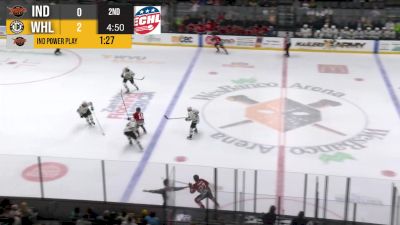 Replay: Home - 2024 Indy vs Wheeling | Apr 23 @ 7 PM
Replay: Home - 2024 Indy vs Wheeling | Apr 23 @ 7 PMApr 24, 2024
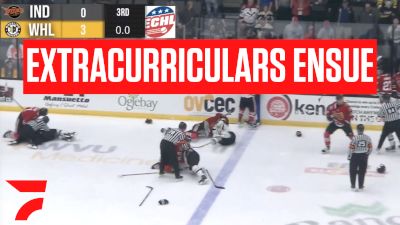 Frustrations Boil Over After Wheeling Nailers Shutout Indy Fuel | ECHL Playoffs
Frustrations Boil Over After Wheeling Nailers Shutout Indy Fuel | ECHL PlayoffsApr 24, 2024
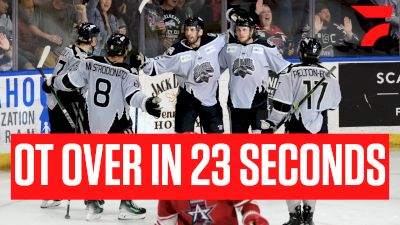 Idaho Steelheads Only Needed 23 Seconds For Overtime Win | ECHL Playoffs
Idaho Steelheads Only Needed 23 Seconds For Overtime Win | ECHL PlayoffsApr 23, 2024
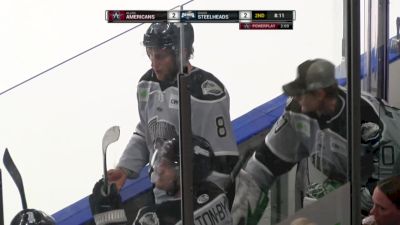 Replay: Home - 2024 Allen vs Idaho | Apr 22 @ 7 PM
Replay: Home - 2024 Allen vs Idaho | Apr 22 @ 7 PMApr 23, 2024
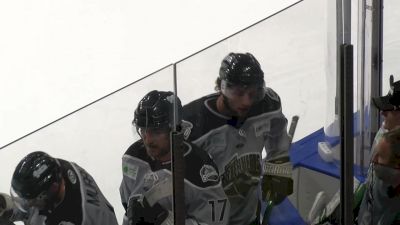 Replay: Away - 2024 Allen vs Idaho | Apr 22 @ 7 PM
Replay: Away - 2024 Allen vs Idaho | Apr 22 @ 7 PMApr 23, 2024
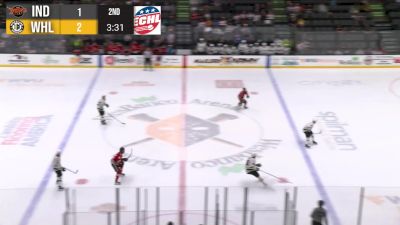 Replay: Home - 2024 Indy vs Wheeling | Apr 22 @ 7 PM
Replay: Home - 2024 Indy vs Wheeling | Apr 22 @ 7 PMApr 23, 2024
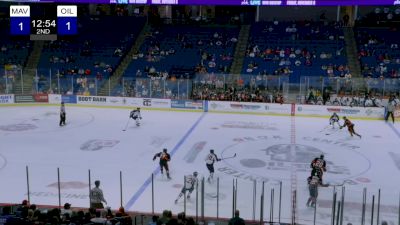 Replay: Home - 2024 Kansas City vs Tulsa | Apr 22 @ 7 PM
Replay: Home - 2024 Kansas City vs Tulsa | Apr 22 @ 7 PMApr 23, 2024
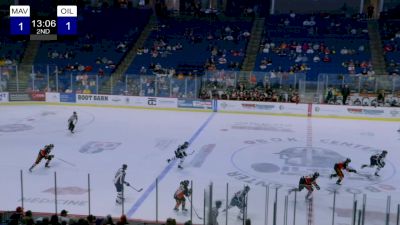 Replay: Away - 2024 Kansas City vs Tulsa | Apr 22 @ 7 PM
Replay: Away - 2024 Kansas City vs Tulsa | Apr 22 @ 7 PMApr 23, 2024